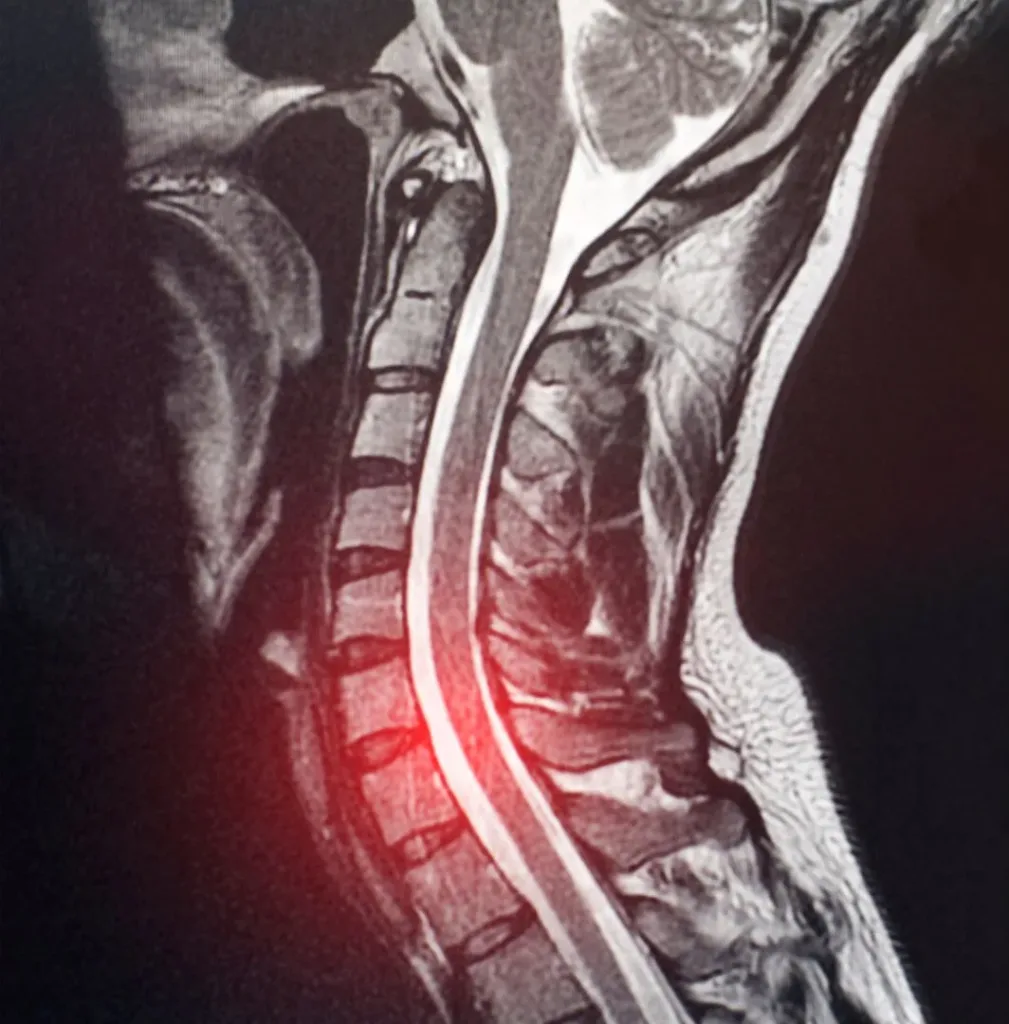
Ever been minding your own business when suddenly, zap—a wild, electric shock-like sensation zings through your neck or spine, leaving you puzzled and a tad unnerved? It’s like your body decided to throw a spontaneous rave without inviting you, the host.
These jolts, though startling, are not as uncommon as you might think. They can range from a mild tingle to a sensation strong enough to make you take pause. So, what’s behind this internal lightning?
In this article, we’ll explore the various reasons why your neck and spine might experience these surprising electric shocks. We’ll look at everything from random nerve firings to conditions like fibromyalgia and Lhermitte’s sign. And don’t worry, we won’t leave you charged with questions—we’ll also touch on what the experts, like those at the NHS, suggest about this phenomenon.
What Causes That Zing?
Is It Just a Random Spark?
Sometimes, your body’s electrical wiring experiences a bit of a hiccup. These random zaps can be due to a variety of benign reasons like muscle fatigue, poor posture, or even just a temporary nerve misfire. Have you ever spent hours hunched over your laptop only to stand up and feel that peculiar buzz? That’s your body reminding you that ergonomics are more than just a fancy office buzzword.
When Your Neck and Shoulders Rebel
But let’s say you’re feeling these shocks more often, particularly in your neck and shoulders. Could it be a sign of something more? Stress, tension, and certain repetitive movements can irritate the nerves in these areas, leading to sensations that are less than pleasant. It’s like your muscles are throwing a tantrum, and the result is that odd electric feeling.
Pay attention to these signs! They’re your body’s not-so-subtle way of telling you something needs to change—whether it’s your posture, your stress levels, or sometimes, your approach to physical activity.
Electric Shocks in the Tongue While Sleeping
Dreams or Reality? Understanding Sleep-Related Electric Shocks
Ever jolted awake from a doze feeling like your tongue’s had a shocking encounter with a battery? While it might sound like a scene from a sci-fi dream, experiencing an electric shock sensation in the tongue during sleep is a real thing. It’s usually a sign that a nerve in your tongue or mouth is playing up.
But before you start worrying about turning into a human taser, know that it’s often just a harmless, though bizarre, bodily quirk. It could be due to grinding your teeth, a vitamin deficiency, or even just a strange reaction your body has to dreaming.
It’s not usually something to lose sleep over, but if your nighttime zaps are becoming a saga, it might be worth mentioning to your dentist or doctor. After all, you want your dreams to be electric, not your tongue!
Fibromyalgia and Electric Shocks

Is Your Body’s Wiring on the Fritz?
For those living with fibromyalgia, the body can sometimes feel like it’s full of crossed wires. This condition, which is characterized by widespread pain, can also cause a sensation similar to receiving a mild electric shock. Imagine your nerves sending out sparky little distress signals — that’s fibromyalgia’s shock sensations for you.
These unexpected jolts can be part of the many nerve-related symptoms that fibromyalgia warriors battle. It’s as if your body’s internal messaging system is delivering emails with a zap. But why does this happen? The truth is, doctors are still trying to pin down the exact causes, but it’s thought to be related to how the brain processes pain signals.
If you’re dealing with these fibro zaps, you’re not alone, and it’s not all in your head. Well, it is, but you know what I mean — it’s real, and there are ways to manage it.
Lhermitte’s Sign
The Spinal SOS: Decoding Lhermitte’s Sign
Lhermitte’s sign is like your spine sending out an SOS via electric telegraph. It’s a sudden, intense sensation that shoots down the spine when you bend your head forward, often described as feeling like an electric shock.
This phenomenon is named after the French neurologist Jean Lhermitte, who must have been as shocked as his patients when he first discovered it. It’s often associated with multiple sclerosis (MS), but it can also occur with other conditions that affect the spinal cord, like cervical spondylosis or vitamin B12 deficiency.
Experiencing Lhermitte’s sign isn’t a DIY diagnosis moment. If you’ve felt this spine-tingling sign, it’s essential to consult a healthcare professional. They won’t have a magic wand, but they will have tests and treatments that can help.
When Your Head Feels Electrified
A Shock to the System: Electric Sensations and Head Health
Just when you thought sudden jolts were reserved for horror movies, your head decides to join in on the action with its own version of an electric shock. Accompanied by a side of dizziness, these sensations can be quite the head-scratcher.
These unexpected zaps can be alarming, feeling as if your brain has briefly become a sparking electrical panel. They can occur out of the blue, sometimes triggered by stress, a sudden movement, or even for no discernible reason at all. It’s like your head is staging a mini-rebellion, complete with dizzy spells for dramatic effect.
If your head is turning into a dizziness-inducing shock machine, it’s a signal to reach out to a healthcare provider. They can help to untangle the wires and get to the bottom of these head zaps.
What Do the Experts Say?
NHS Insights on Electric Shock Sensations
When it comes to health, it’s always wise to turn to the experts for their shock-absorbing insights. The National Health Service (NHS) in the UK offers a wealth of knowledge, especially when you’re trying to make sense of these electric shock-like sensations.
According to NHS guidelines, these sensations can be symptoms of various conditions, from the relatively benign to the more serious. They may suggest nerve compression, vitamin deficiencies, anxiety, or neurological disorders. The NHS emphasizes the importance of a proper diagnosis, because, let’s face it, Googling symptoms can sometimes lead you down a rabbit hole of misinformation and unnecessary panic.
If electric shocks are becoming part of your daily routine, it’s time to book an appointment with your GP. They can conduct the necessary tests or refer you to a specialist who understands that when you say you’re getting shocks in your neck, you’re not talking about a new kind of trendy necklace.
Taming the Electrical Storm Within
And there you have it — a whirlwind tour through the electrifying world of those pesky neck and spine zaps. We’ve journeyed from random sparks to the potential thunderstorms of underlying health conditions, all in the quest to understand these bizarre sensations that can make you feel like you’re living in a science fiction novel.
Remember, while it’s tempting to become an armchair neurologist, seeking professional advice is always the best route. These electric shocks, however small they may seem, are your body’s way of waving a little red flag.
Stay charged with curiosity, but also stay grounded in the reality that health is a complex circuit board that sometimes needs a professional technician — in other words, a good doctor.
Final Words
You’re not just a bystander in your health story. By understanding the possible reasons behind these shock-like sensations and knowing when to seek help, you’re taking control. It’s empowering, isn’t it? Like harnessing the energy of your own personal power plant.
We’d love to hear your experiences or any feedback you have on this topic. Have you ever felt these electric shock sensations? What was it like for you, and how did you handle it? Your stories could be the beacon that guides others through their own neurological quests.
What’s been your most shocking moment, and how did you find your way back to a shock-free existence? Share your tales of nerve-racking nerve zaps and how you navigated your way through the storm.




